VIPsight - 1st Edition 2016
COMPANIES
Thyssenkrupp: Reorganization in the European steel industry?
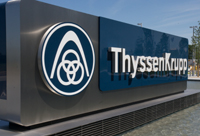 According to the industrial giant Thyssenkrupp, the European steel industry could soon be up for an overhaul. Company chief Heinrich Hiesinger told "Welt am Sonntag" in an interview "We expect that it will eventually come to a consolidation".
"If that opportunity arises, we will be part of it"
The steel industry is regularly beset by risks that raise fears about their capacity to survive. Overcapacities and regulation are particularly challenging. When asked about the role of the private steel sector Hiesinger said: "If there is an opportunity to consolidate, we will be involved in it." However, the manager does not expect ordinary acquisitions, but rather mergers.
In October Thyssenkrupp announced a new savings programme for its steel division of some 100 million Euros a year.
According to the industrial giant Thyssenkrupp, the European steel industry could soon be up for an overhaul. Company chief Heinrich Hiesinger told "Welt am Sonntag" in an interview "We expect that it will eventually come to a consolidation".
"If that opportunity arises, we will be part of it"
The steel industry is regularly beset by risks that raise fears about their capacity to survive. Overcapacities and regulation are particularly challenging. When asked about the role of the private steel sector Hiesinger said: "If there is an opportunity to consolidate, we will be involved in it." However, the manager does not expect ordinary acquisitions, but rather mergers.
In October Thyssenkrupp announced a new savings programme for its steel division of some 100 million Euros a year.
Nordex awarded 14 turbine project contracts
 Germany's leading project developer wpd has awarded Nordex contracts for the supply of 14 wind turbines with a total nominal output of 33.6MW. The turbines ordered are low-wind machines that are due to be linked to the grid in the third quarter of 2016.
Germany's leading project developer wpd has awarded Nordex contracts for the supply of 14 wind turbines with a total nominal output of 33.6MW. The turbines ordered are low-wind machines that are due to be linked to the grid in the third quarter of 2016.
The projects are located at sites in Hessen, Thuringia and Saxony-Anhalt. Ten of the turbines will be installed at a tower height of 141 metres, and the remaining four at a tower height of 120 metres.
Furthermore, wpd has signed 15-year Premium service agreements for the turbines. These new orders confirm the continuation of the long-standing successful relationship between the companies in Germany
Ströeris heavily investing
The Cologne-based advertising specialist Ströer is expanding to Poland and taking over the activities of the Goldbach Group. The price of the transaction, due to be paid in the first quarter of 2016, has not been disclosed. According to Ströer COO Christian Schmalzl, the acquisition of Goldbach’s Polish online business is a good move. "This acquisition is another important step to strengthen our cross-media market position in Poland," said the manager. The Küsnacht-based company is not unknown there. Goldbach is reported to feature on the most extensive ad network in Poland after Google, with over 20 million users and more than 800 websites, 450 of which are in exclusive marketing.
Carl Zeiss Meditec AG turnover increases to 1.04 billion Euros
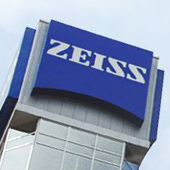 Carl Zeiss Meditec AG can once more look back on a positive financial year. Boosted by favourable currency swings, the supplier of medical technology overshot the one billion mark in financial year 2014/15, with sales up by 14 percent to 1.04 billion Euros. After currency adjustments, growth was up approximately 8 percent over the previous year. Earnings before interest and tax rose by 8 percent to 130.6 million Euros from 120.7 million Euros in the previous year. EBIT of 12.6 percent was down from last year’s 13.3 percent adversely affected by additional targeted investments in research and development. Adjusting for these additional investments and considering the positive effect on the operating result of currency swings, EBIT would have increased by 13.8 percent in line with the previous year (13.7 percent). The company's growth was fed – albeit with different dynamics - from all three business units and regions of the world.
"A strong fourth quarter and a tailwind from the exchange rates of major currencies supported operating earnings," said Dr. Ludwin Monz, CEO of Carl Zeiss Meditec AG.
Carl Zeiss Meditec AG can once more look back on a positive financial year. Boosted by favourable currency swings, the supplier of medical technology overshot the one billion mark in financial year 2014/15, with sales up by 14 percent to 1.04 billion Euros. After currency adjustments, growth was up approximately 8 percent over the previous year. Earnings before interest and tax rose by 8 percent to 130.6 million Euros from 120.7 million Euros in the previous year. EBIT of 12.6 percent was down from last year’s 13.3 percent adversely affected by additional targeted investments in research and development. Adjusting for these additional investments and considering the positive effect on the operating result of currency swings, EBIT would have increased by 13.8 percent in line with the previous year (13.7 percent). The company's growth was fed – albeit with different dynamics - from all three business units and regions of the world.
"A strong fourth quarter and a tailwind from the exchange rates of major currencies supported operating earnings," said Dr. Ludwin Monz, CEO of Carl Zeiss Meditec AG.
For the first time, Frankfurt Airport tops the 60 million passenger a year mark 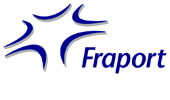 For the first time in its history, Frankfurt Airport handled more than the record number of 60 million passengers in a year. The lucky 60 millionth was 13 year-old Antonia Hein from Fulda. Together with her parents and siblings she got to terminal 1 at 2.30 pm, to check in for Condor flight DE2290 to Cape town where she and the family planned to spend the festive season with their oldest sister. The occasion was marked by a public ceremony in the terminal building during which Anke Giesen, Fraport executive board member, presented the family with a travel voucher worth 1000 Euros, which they can redeem against their next booking with the Fraport AG travel agency. Then, Dr. Jens Boyd, director long haul & revenue management of Condor, presented the whole family with a flight voucher that can be used for travelling to all Condor destinations in Europe.
For the first time in its history, Frankfurt Airport handled more than the record number of 60 million passengers in a year. The lucky 60 millionth was 13 year-old Antonia Hein from Fulda. Together with her parents and siblings she got to terminal 1 at 2.30 pm, to check in for Condor flight DE2290 to Cape town where she and the family planned to spend the festive season with their oldest sister. The occasion was marked by a public ceremony in the terminal building during which Anke Giesen, Fraport executive board member, presented the family with a travel voucher worth 1000 Euros, which they can redeem against their next booking with the Fraport AG travel agency. Then, Dr. Jens Boyd, director long haul & revenue management of Condor, presented the whole family with a flight voucher that can be used for travelling to all Condor destinations in Europe.
Anke Giesen expressed her satisfaction at having achieved a new record high, and remarked “Just 11 years ago we reached the 50 million mark – now with 60 million passengers we have made a quantum leap”.
2015 was the also year when the airport logged the busiest passenger day in its history. Not only was a new record reached on August 2 when 217,500 members of the travelling public transited the airport, but the number of 200,000 passengers was exceeded on no fewer than 63 days in 2015, against 28 times in 2014 and not once in 2013.
Frankfurt Airport’s 2015/16 winter schedule features 88 airlines flying to 247 destinations, of which 130 intercontinental, in 100 countries more than half of which are extra European. This confirms the airport’s vocation as a major international aviation hub, ranking, in Europe, first for cargo and third for passengers.
Deutsche Bank sells share in China for billions
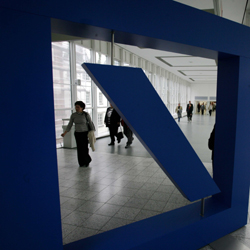 The new co-CEO of Deutsche Bank, John Cryan is moving ahead with the bank restructuring programme.
The new co-CEO of Deutsche Bank, John Cryan is moving ahead with the bank restructuring programme.
Four days after Christmas he announced the divestment of the quota in China’s Hua Xia Bank for 3.2 to 3.7 billion Euros. The coffers of Germany’s biggest bank swell with the revenue that will strengthen its capital buffer and Cryan moves ahead with the mopping up. It is also highly likely, according to “Strategy 2020” that the bank will also sell off its interest in Postbank, with the loss of thousands of jobs and focus on fewer propositions.
“We first became involved with the Hua Xia Bank in 2006 and China remains a key growth market for us “, Cryan said in a statement. While Deutsche Bank has been “pleased” with Huaxia Bank’s development, “now is the right time for us to sell this investment”. Deutsche Bank’s 20% Holding of the Hua Xia Bank is being bought by the Chinese insurance corporation PICC. Cryan expressed his hopes that the new holding would provide steady income and also cooperation opportunities.
Vonovia set to build new headquarters in 2016 – construction commences end 2016
Real estate concern Vonovia SE is staying in Bochum and is planning to build a new office block. The building will rise in a 30,000 square metre property purchased in the district of Wiemelshausen in Bochum.
“This is a milestone for the industrial region of Bochum. I am delighted that the DAX company is staying in Bochum to expand here“, said mayor Thomas Eiskirch. I am very pleased with the ease with which we –together with the city of Bochum- agreed on terms. For that I wish to thank the mayor of Bochum, Mr Eiskirch. When a company prospers in a city, it should stay there to grow. We feel confident that our constructive and positive collaboration with the city of Bochum and the Economic Development Office will continue to flourish“ said Rolf Buch, CEO of Vonovia SE.
Record year for Arianespace
A record year has assured European missile operator Arianespace with a healthy order book for rocket launches, reported CEO Stéphane Israël in Paris. Bookings now stand at a record 5.3 billion Euros, adequate to face the fiercest competition. But Arianespace cannot afford to rest on its laurels and, insists Israël, must lower costs in order to keep competitors like the US company SpaceX at bay.
Last year Arianespace successfully performed a record twelve launches from the European spaceport in Kourou, French Guiana (South America), placing 21 satellites into orbit. With a forecast revenue in excess of 1.4 billion Euros, Israël expects to break even. This year, Arianespace will perform eleven launches with its Ariane 5, Soyuz and Vega vehicles.
Israël has high hopes for the new generation of European missiles, and last year the European Space Agency awarded the Ariane 6 multi-billion dollar development contract to Airbus Safran Launchers (ASL). The rocket manufacturer aims to acquire a majority holding in Arianespace, a process which, according to Israël is "going very well". The acquisition is part of the European missile industry reorganization programme to be able to compete successfully against companies such as SpaceX.
Save taxes using M2M
In a bold move last October, Sixt Leasing AG and its subsidiary Sixt Mobility Consulting AG launched an especially hi-tech M2M application, the fully automatic Sixt Logbook. Its technology is based on an innovative plug-and-play solution from Telefónica and Geotab. Telefónica Germany acts as a general contractor providing the hardware, service and the necessary wireless connection from a single source.
Sixt Leasing AG is one of the leading manufacturers and leasing providers in Germany that stand independent of banks with subsidiaries in Austria, Switzerland, France and the Netherlands. Through a franchise network the company also reaches customers in more than 40 countries. With the new Sixt Logbook both companies reap the benefits of digitization and makes intra-business communication by M2M communications easier for its customers
Surteco: Back to SDax
In its drive for re-admission to an SDax listing, surface technology specialist Surteco launched a major free float. The announcement was made by CEO Herbert Müller in an interview published in Börsen Zeitung. According to Müller, the company’s principal aim is to bolster its plastic materials business and is on the lookout for suitable companies to purchase. One way of funding such a transaction could be by resorting to the capital market, says Müller and one of its side effects would be a return to an SDax listing. At the present time, the founding shareholders hold a 54.6 percent stake in the company and Allianz, Axxion, Lazard Freres and Delta Lloyd hold packets of between 3 and 5 percent. Analysts reckon that Surteco’s turnover for 2015 will be 637 million Euros with a net profit of 23 million Euros.
Ströer blast off towards the new year
Digital, the outdoor advertising sales organization expects to post a double-figure growth percentage for the first quarter of 2016. The exceptional success of 2015 should continue to assure growth well into 2016. The company has announced that the EBITDA that was raised to 200 million Euros last November has been exceeded. The target EBITDA for 2016 has been set at 270-280 million Euros.
Lotto 24: higher turnover lower loss
On the basis of figures available today, the 2015 turnover of Lotto 24 AG is reported to have gone up from 7.7 million Euros to 13.5 million. The company has confirmed the increase in registered customers from 0.521 million to 0.883 million with a consequent fall in cost for each new customer acquired. The upshot is that Lotto24’s losses have diminished from 14. 2 million Euros 13.4 million. For 2016, the company has set its sights on an increase of 26-30 percent in the volume of transactions. In a communiqué, the company announced that the forecast EBIT should lower costs for part of the year compared to last year.
The German Mittelstand
German industrial SMEs don’t suffer from the “German Angst” apprehension
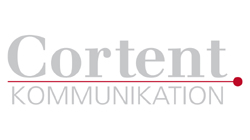
German SMEs are forecasting growth as usual for 2016 according to a survey carried out on behalf of the SME Commission of the German Federal Confederation of Industry (BDI) and chartered accountant/company auditor Price Waterhouse Coopers AG . The results that emerged from interviews with some 800 companies were published in mid-January 2015. 40.3 percent of companies questioned rated their future prospects as “very good” or “good” while 43.4 percent rated their prospects as “satisfactory”.
The slash in oil prices, interest rates that have never been so low, together with a stable employment market make these numbers only to be expected. Nor is there anything unusual in there being more scepticism surrounding the national political and economic outlook for the next twelve months than the perception that individual SMEs have of their own prospects. The continuation of trade restrictions with Russia, and the downturn in Chinese GDP are drawbacks to the hoped for positive results in exports. Furthermore, better capitalization and continual and enhanced growth on the ground strengthen a company’s substance and self-respect over the previous major crisis of 2008 and 2010.
It was more or less at that time that WGZ Bank, DZ Bank and Bundesverband der Deutschen Volksbanken und Raiffeisenbanken (BVR) conducted a survey among SMEs. Approximately 1300 industrialists and small company owners in Germany spoke of their hopes and aims for the first half of 2016.
These results, however, are different. Without going into detail, the Autumn targets are substantially lower than they had been the previous Spring. One, or perhaps the only consolation was the BVR executive board member’s appreciative remark regarding the “quality of the accounts” that for German SMEs continued to be high and which prepared them well “for the coming years”.
While the surveys carried out by BDI / PwC on the one hand and WGZ Bank/DZ Bank/BVR on the other are not identical, the gap between the 2016 results of the group called Industrial SMEs and those of the less specific denomination called simply SME is indeed surprising.
One possible explanation could be a lack of overlap between the two surveys or perhaps different models for collating and gathering data. There is no single plausible explanation for such different results. Confidence in one’s own resources come up against what is known abroad as “German angst”.
Buhlmann's Corner
What’s the difference between Volkswagen and DeutscheBank? Right answer! – nothing except their ISIN (International Securities Identification Number)
Right answer! – nothing except their ISIN (International Securities Identification Number)
It was Rolf-E. Breuercon who set the ball rolling for DeutscheBank with an inept interview that triggered a ten-year-long stint of legal battles. In the end the bank was near on a billion Euros poorer in hard cash and loss of image, not even counting legal fees.
Volkwagen’s cause, by contrast, was served by a CEO who with disarming naïveté made a great show of ‘open mouth insert both feet’ during the North American International Auto Show in Detroit, plumbing unexplored depths of stupidity and gaucherie. It almost seemed that the higher you get on the salary scale, the more you tend to throw English overboard together with the instruction manual on how to turn the brain switch to the ‘on’ position before answering reporters’ questions.
http://www.npr.org/2016/01/13/462883613/vw-ceo-we-didnt-lie-about-emissions
“We didn't lie. We didn't understand the question “
“We had not the right interpretation of the American law “
was the truculent answer delivered by Volkswagen chief Matthias Müller when being questioned in a radio interview hosted by NPR (National Public Radio). If these were his own words he was badly out of line. If they were being fed to him, his choice of source was badly out of line.
When a CEO states that he didn’t understand a question that he gave an answer to, and forgets to get a clear grasp of the rules of compliance of a priority market before setting out to conquer it, the Supervisory Board ought to intervene to shield shareholders from further harm. Here’s hoping that the car manufacturer’s Supervisor Board makes great haste, much more than the bank did when it entrusted the flock to the safekeeping of the lone wolf.
Volkswagen’s skill in manoeuvring within scenarios of this kind leaves a lot to be desired. The Supervisory Board’s first move was to summon an extraordinary shareholders meeting for November 9, 2015. But then, the shareholders’ voting orientation seemed to be veering towards the unfavourable so the meeting was cancelled and the tribunal petitioned to appoint former CFO Hans Dieter Pötsch as new chair of the Supervisory Board. He seems to be above reproach but his involvement is considerable because of the ad hoc publication that constitutes the basis of the shareholders’ action.
ACTIONS CORNER
DEUTZ and KION Group extend their partnership
The Cologne based engine manufacturer DEUTZ and the KION Group-one of the two largest suppliers of forklift trucks and other storage equipment-are expanding their partnership in equipping the large Linde KION premium brand forklifts with the newly developed DEUTZ 2.2-litre engine, which by 2019 will appear in both diesel and LPG versions.
In a communiqué, Michael Wellenzohn, executive board member for Sales/Service &Marketing of DEUTZ AG notes "We are delighted to be considered a leader in forklift technology by the KION Group. This strategically important partnership will boost our growth in materials handling and establish our status in the promising sector of gas fuelled engines".
Axel Springer Auto Verlag acquires majority stake in clever-tanken.de
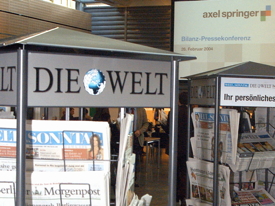 On January 1, 2016, Axel Springer Auto Verlag GmbH headquartered in Hamburg became the majority shareholder of clever-tanken.de, the consumer interface website and mobile app for iOS and Android devices of infoRoad GmbH. With more than 13.5 million hits per month (stationary and mobile Internet, source: IVW / Google Analytics November 2015) it provides a service that enables consumers to compare current fuel prices at service stations and emerges as leader and multiple test winner in the field of mobile services apps for motorists. The AUTO BILD Group and clever-tanken.de have been working successfully together since 2014.
On January 1, 2016, Axel Springer Auto Verlag GmbH headquartered in Hamburg became the majority shareholder of clever-tanken.de, the consumer interface website and mobile app for iOS and Android devices of infoRoad GmbH. With more than 13.5 million hits per month (stationary and mobile Internet, source: IVW / Google Analytics November 2015) it provides a service that enables consumers to compare current fuel prices at service stations and emerges as leader and multiple test winner in the field of mobile services apps for motorists. The AUTO BILD Group and clever-tanken.de have been working successfully together since 2014.
"Clever-tanken.de is not only powerful and at the cutting edge of the latest technology, but also shows strong growth in downloads and absolute coverage, especially with the app" said Dr. Hans H. Hamer, publishing director of the publishing group Auto, Computer & Sport der Axel Springer SE. "The portal fits perfectly into the digital growth strategy of the AUTO BILD Group and offers our customers a lot of value in use and many exciting points in the Connected Cars function."
Steffen Bock, founder and CEO of infoRoad GmbH: "AUTO BILD is the authority on cars in Germany and like clever-tanken.de has provided its customers with benefit-oriented services of the highest quality for many years. I look forward to even closer cooperation and the joint development of the product. "
Politics
New legislation regulating syndics clarifies the role of Compliance Officer On December 17, 2015 the Bundestag passed the law introducing “new justice for syndic lawyers” (18/5201, 18/6915) and the Bundesrat passed it the day after. The law, which came into force on 1 January 2016 was hailed by the Association of Compliance Officers as introducing the long awaited framework of reference.
On December 17, 2015 the Bundestag passed the law introducing “new justice for syndic lawyers” (18/5201, 18/6915) and the Bundesrat passed it the day after. The law, which came into force on 1 January 2016 was hailed by the Association of Compliance Officers as introducing the long awaited framework of reference.
“Syndic lawyers, especially those who act as compliance officers, who often find themselves out on a limb without guidelines or directives, will benefit from this law and the transparency it creates for their position within the company“ remarked Cornelia Koch, first vice president of The Association of Compliance Officers and Lead Senior Legal Counsel Compliance and syndic lawyer at SAP SE.
A syndic lawyer working in compliance has to assess the validity of claims and explain the procedures and dynamics required by the increasingly extensive range of regulations and jurisdiction involved in contracts with customers, partners and suppliers of the employer. Moreover, they also guide contractual negotiations with the legal departments of other companies, and public bodies and authorities. This recent legislation not only clarifies the job description but tightens up ambiguities and redundancies in the previous law.
Kaiser/Tengelmann
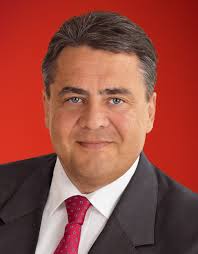 Federal Minister of Economic Affairs and Energy Sigmar Gabriel (SPD) plans to permit the controversial takeover of supermarket chain Kaiser's Tengelmann by the Hamburg based retail giant Edeka by special permit, subject however to strict conditions. Edeka must guarantee that the approximately 16,000 jobs at Kaiser's Tengelmann, which was in the red for many years, are completely safeguarded for at least five years and the employees are to be paid collectively, insists Gabriel. If Edeka fulfils all conditions, the SPD leader can invoke a minimum concession of the 'no' vote from the Federal Cartel Office to justify overruling the negative verdict handed down by the monopolies commission. The Federal Cartel Office had rejected the purchase of approximately 450 stores by Edeka for reasons of competitiveness. The Edeka Group already controls 25 percent of food retailing. The two companies and other competitors have time to express their opinions on these conditions after which Gabriel will make the final decision.
The Verdi trade union praised Gabriel’s idea "The demands of the Minister go far beyond what Kaiser's Tengelmann and Edeka originally had in mind."
Federal Minister of Economic Affairs and Energy Sigmar Gabriel (SPD) plans to permit the controversial takeover of supermarket chain Kaiser's Tengelmann by the Hamburg based retail giant Edeka by special permit, subject however to strict conditions. Edeka must guarantee that the approximately 16,000 jobs at Kaiser's Tengelmann, which was in the red for many years, are completely safeguarded for at least five years and the employees are to be paid collectively, insists Gabriel. If Edeka fulfils all conditions, the SPD leader can invoke a minimum concession of the 'no' vote from the Federal Cartel Office to justify overruling the negative verdict handed down by the monopolies commission. The Federal Cartel Office had rejected the purchase of approximately 450 stores by Edeka for reasons of competitiveness. The Edeka Group already controls 25 percent of food retailing. The two companies and other competitors have time to express their opinions on these conditions after which Gabriel will make the final decision.
The Verdi trade union praised Gabriel’s idea "The demands of the Minister go far beyond what Kaiser's Tengelmann and Edeka originally had in mind."
People
Fintech: Peter Thiel participates in Zinspilot
Peter Thiel, co-founder of PayPal and the first institutional investor in Facebook, is expanding his involvement in German FinTech companies. He invests in the Hamburger FinTech company Deposit Solutions, which operates the platform "Zinspilot". The company has not divulged details of Thiel’s financial commitment but it completes the round of a total financing of 6.5 million Euros of which the lion’s share came from FinTech Investor FinLab AG. Deposit Solutions is one of the portfolio companies of FinLab AG. According to the company Deposit Solutions offers the first open architecture on overnight and fixed-term deposits in Europe. The company's goal is as simple as it is ambitious, to "reinvent" nothing less than the 9 trillion Euro heavy European market for private savings. Thiel had already invested in German FinTech startups like EyeEm, Kreditech and Number 26 before joining Zinspilot as the portal "Gründerszene" reported. According to Gründerszene shareholders of Deposit Solutions include the venture capital investor e.Ventures, as well as business angels Stefan Wiskemann, Stefan Glänzer and Christoph Linkwitz.
New managing director for HHLA subsidiary CTD Intermodal
There is a change in management at CTD Container-Transport-Dienst GmbH. Ralph Frankenstein (44) previously CTD sales director is the new managing director taking the place of Marcus Bönning (45), who resigned amicably and at his own request on 31 December 2015.
Klaus-Dieter Peters, Chairman of the Supervisory Board at CTD and Chairman of the Executive Board of Hamburger Hafen und Logistik AG (HHLA) said: “We are delighted to be able to appoint in Mr. Frankenstein such an experienced and expert Managing Director at CTD. Mr. Frankenstein has been familiar with the industry and operating activities at CTD for a long time.” Peters thanked the previous Managing Director of CTD, Marcus Bönning, for his many years of successful work and wished him all the best for the future.
CTD Container-Transport-Dienst belongs to the Intermodal segment at HHLA. The companies in this business unit increased their operating result (EBIT) in the first nine months of 2015 by almost 100 percent over the same period in the previous year to a joint 44.0 million Euros and their revenue increased by 3.6 per-cent to 272.8 million Euros. The transport volume of HHLA’s Intermodal companies grew by 2.4 percent to 996 thousand standard containers (TEU).
CTD is the market leader for container transfer inside the Port of Hamburg and also transports containers throughout Germany and Europe.
Francotyp-Postalia: Günther steps into the CEO slot
The wind of change is blowing at the top echelons of Francotyp-Postalia Holding. Effective 11 January 2016, Hans Szymanski will step down as spokesperson member of the executive board. The new member of the board and also its chairperson is Andreas Günther who was CFO of Jenoptik AG from 2012 to 2015. He will take on the responsibility for the finances of Francotyp-Postalia. Szymanski joined the executive board of Francotyp-Postalia Holding AG in 2008.
Klassik Radio: Play it again
The Supervisory Board of Klassik Radio AG voted unanimously to renew the appointment of Ulrich R. J .Kubak as managing director of the executive board for a further five years, until 10 January 2021. At present Kubak is the only member of the executive board.
Nordex: CFO defects to Hella
The board of partners of HELLA KGaA Heuck & Co. has appointed Bernard Schäferbarthold (45) presently CFO with Nordex SE to its executive board as comptroller and head of finance. Schäferbarthold will take the place of Dr. Wolfgang Ollig who is resigning on amicably agreed terms in order to seek out new opportunities. After working in auditing and chartered accountancy for auditors Warth & Klein, Schäferbarthold joined Nordex in 2005, where he was appointed CFO in 2007.
Campus
German market for apartments booms
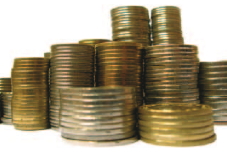 According to real estate organization Savills, investments in the German housing market increased significantly in 2015. Investments rose by one third over 2014 and now stand at 22.5 billion Euros.
According to real estate organization Savills, investments in the German housing market increased significantly in 2015. Investments rose by one third over 2014 and now stand at 22.5 billion Euros.
Furthermore Savills reports that 255 apartment packages, which combine more than one unit changed ownership. 24 of all businesses contained 1000 or more apartments. A total number of 319,500 apartments were traded, 33 per cent more than in 2014.
The analysis also revealed an increase in prices. The average price of an apartment in 2014 was 56,000 Euros, whereas today the average stands at 70,000 Euros.
Regional distribution turned up a few surprises. Almost two thirds of apartments were purchased in Berlin. After Berlin and Hamburg, most apartments were traded in centres such as Dresden, Leipzig and Hannover.
“Investors are increasingly purchasing apartment packages away from large cities“, said Matthias Pink, director of research at Savills. The reason or this is two-fold. Firstly top sites, are in great demand and secondly, investors have deep-seated faith in the German real-estate market. Dax-listed real estate companies dominate both buying and selling, with Vonovia as premier purchaser with 150,000 properties followed by Deutsche Wohnen, LEG Immobilien and Alder Real Estate.
Capital News
SAP figures cast shadows ahead
 Positive comments from analysts give SAP share some fresh momentum. As one of the favourites in the DAX listing, the paper of Europe's largest software group became more expensive against the weak market trend.
Analyst Gerardus Vos of British investment bank Barclays daringly forecasts the papers to have potential. He raised the price target by 20 to 100 Euros. He sees potential improvement exceeding 30 percent. In his view, the new version of the core software S4 Hana has plenty of potential and feels sure of the continued strength of the cloud business and improved cost control.
Positive comments from analysts give SAP share some fresh momentum. As one of the favourites in the DAX listing, the paper of Europe's largest software group became more expensive against the weak market trend.
Analyst Gerardus Vos of British investment bank Barclays daringly forecasts the papers to have potential. He raised the price target by 20 to 100 Euros. He sees potential improvement exceeding 30 percent. In his view, the new version of the core software S4 Hana has plenty of potential and feels sure of the continued strength of the cloud business and improved cost control.
The group is likely to benefit from the profit dynamism.
Knut Woller, an analyst at the Baader Bank, also commented favourably about S4 Hana in a study and deems that it will grow in reliability. Indeed, the tailwind provided by database software business, SAP could exceed market growth expectations. Woller raised his price target to 85 Euros and upwards and recommends buying the papers.
Companies: North-Rhine-Westfalia and Bavaria take the lead
Auditing and Consulting company EY (Ernst and Young) recently concluded a survey on the landscape of Germany’s top 100 stock exchange-listed companies, and made some quite surprising discoveries. The first is the location of companies in order of turnover. Indeed, 27 of the top 100 majors are registered in North-Rhine-Westphalia and 26 in Bavaria, thus accounting for more than half of the total. The Land that the public generally associates with mechanical engineering and automobile manufacture, namely Baden-Württemberg, only ranks third with 15 company headquarters. On the other hand, the 13% increase in turnover posted by the companies in the south west indicates a vigour seemingly less present in Bavaria (11%) or North-Rhine-Westfalia (5%). If adjustments are made in this sense, therefore, common perception of the dynamism in the south west is not so far from reality after all.
The study also confirms that companies with the highest turnover are still those of the “old” German manufacturing and engineering economy. 28 of the 100 companies are industrial/ manufacturing and/or engineering with 11 exclusively involved in the automobile sector and only 6 in information technology.
Furthermore, prosperity-fuelled growth seems to be the prerogative of the larger companies. Indeed, according to the survey, the cumulative turnover of the top 100 increased by 8.2 percent in the first three quarters of 2015 to almost 1.2 billion Euros. Four out of five (81 percent) of the companies posted an increase in turnover while fewer than 1 company in 5 had a downturn on the corresponding period of last year. The rankings are dominated by companies in car manufacture. Four of the ten companies with the strongest turnover are automobile companies with Volkswagen and Daimler occupying first and second slots.
The highest profits are made by car manufacturers, Daimler and BMW top the list of profit making companies, Daimler with 10.3 million Euros and BMW with 7.4 million. Similarly the margins earned by Audi, Volkswagen and Continental respectively 4 million, 3.3 million and 3.2 million place them among Germany’s top ten profit earners.
"German companies are currently well placed to benefit from the economic recovery in Europe and the strong demand from the United States," noted Thomas Harms, partner of E&Y.
2015: Highest number of IPOs in Germany since 2007
2015 was a record year for stock-exchange flotations with the highest number of new listings since 2007. The Frankfurt bourse listed 24 newcomers according to “Deutsche Börse” against 19 in 2014. Even more dynamic was the number of IPOs; seven billion Euros worth of shares were placed in 2015 compared to 4 billion’s worth in 2014. According to “Deutsche Börse”, the largest IPO of the year was Covestro, the plastics division of the Bayer Group worth some 1.5 billion Euros, followed by Deutsche Pfand brief bank for 1.16 billion Euros to carry on the core business of the nationalized offshoot Hypo Real Estate (HRE).
Scout 24 came in third with 1. 02 billion Euros.
One of next year’s more eagerly awaited offers is the IPOs for parts of the Eon and RWE generating companies
2015 shares: 53 percent plus - or minus 58 percent
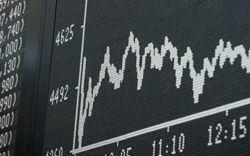 It comes as no surprise that corporations who follow a business model that looks in any way breakaway feel repercussions in the value of their shares. Investors seem to be more willing to back a well-known brand company going through hard times on making a turnaround. Such was the case with Adidas, the sporting goods company that became the big DAX success story of 2015. With an increase of almost 58 percent, the share is referring Fresenius and Infineon clear to the courts. The shareholders of the health care group and the technology company, however, had an exhilarating last twelve months, seeing their shares rise in value by about 53 percent each.
It comes as no surprise that corporations who follow a business model that looks in any way breakaway feel repercussions in the value of their shares. Investors seem to be more willing to back a well-known brand company going through hard times on making a turnaround. Such was the case with Adidas, the sporting goods company that became the big DAX success story of 2015. With an increase of almost 58 percent, the share is referring Fresenius and Infineon clear to the courts. The shareholders of the health care group and the technology company, however, had an exhilarating last twelve months, seeing their shares rise in value by about 53 percent each.
Adidas shareholders believed in a turnaround. Bickering close to home lost them the race against major rival Nike and forced a retreat. Then by tackling local competition head on theyfailed in their attempt to conquer the US market, and then they were caught unprepared by the economic crisis and rouble decline in their third-largest market Russia. Investors stood firm, however, and analysts assess the Adidas share as by and large positive. According to Bloomberg the share was recommended for purchase 16 times in the past three months. 20 times experts advised to keep the paper, six times they advised to sell.
Most recently both Markus Riesselmann of Independent Research and Jörg Philipp Frey of MM Warburg were particularly optimistic with a price target of 110 Euros and 103 Euros respectively.
Reviews of Fresenius were similarly optimistic. 12 experts advised to buy, 13 to hold and only two to sell. Sven Kuerten of DZ Bank and Justin Smith of the Société Générale forecasts the share to rise to 76 Euros. The medical group stays "on course for growth and further improves its fundamental position", Kürten wrote in a study.
In the second Stock Exchange League unsurprisingly MDax achiever Ströer is top dog. The specialist in outdoor advertising gained a remarkable 130 percent and was uncatchable. With a gain of nearly 70 percent Rheinmetall managed won the number two slot in the index for mid-caps, followed by Gerresheimer with 63 percent.
But 2015 was also a year when investors made the biggest profits with smaller side values. In the SDAX, financial services provider Hypoport made it to the top with an astounding increase of more than 530 percent. In second place - also with a similarly sensational performance of nearly 220 percent - machine manufacturer König & Bauer. Third-ranking Patrizia Holding rang up an increase of almost 150 percent with real estate transactions.
Many disappointments
Shareholders of RWE and E.on can only dream about scenarios like this. Once more, they get the wooden spoon. Hard put by the effects of the energy transition, RWE and Eon are the biggest losers in 2015. RWEs stock market value fell by more than a half, while Eon dropped more than a third. With its search for a new business model, the erstwhile flagship company scored few points with investors.
Volkswagen shareholders were in for a nasty surprise in late summer. The name for manipulated exhaust emission data was “Diesel-Gate“. The affair is still very unclear and the consequences cannot be foreseen.
In MDAX, Leoni disappointed with a loss of 25%, followed closely by Hugo Boss. Elringer-Klinger forfeited 18%. In SDax, Gerry Weber and Biotest struggled. The fashion company lost more than 62%, the pharmaceutical company lost half its stock market value. Less bad but not good, was HHLA Hamburg Harbour And Logistic with a loss of “only” 17%.
Heidelberg shares and Heidelberg bonds
Heidelberg shares began a rebound at the beginning of the second quarter to a high of 2.41 Euros on 21 July. They fell in August due to a weakening in the Chinese economy but then rose again in September so in that one quarter, they had risen by some 15 percent to 2.29 Euros on 30 September. The shifts in Heidelberg convertible bonds in that quarter were analogous and they, too, closed higher than at the beginning of the quarter. Heidelberg corporate bonds traded continuously above 100 percent.
Shares 2016: Borussia Dortmund – back to a winning streak
 Borussia Dortmund’s draw with FC Porto from Portugal in the second round of the UEFA Europa League was as welcome as it was hard-fought, heralding the only German-listed football club back to its former strength, not only athletically.
Revenue grew in the first quarter of the fiscal year 2015/16 (July to September) by 28.6 percent to 90.0 million Euros over the previous year while operating profit (EBITDA) at 13.9 million remained stable from the previous year. The remaining results were however negatively affected by write-downs on long-term intangible assets and thus were negative. EBIT dropped by 5.2 million Euros (previous year: plus 3.8 million Euros) and net profit to minus 5.6 million Euros (previous year: plus 2.4 million Euros).
The BVB share however made a significant recovery in the second half of 2015, after the SDAX paper fell after a weak performance last season on a multi-year low. This was attributed to the improved athletic prospects concurrent with the arrival of Thomas Tuchel as coach, the same prospects that convinced analysts at GSC Research, to raise the target price for the BVB share of 4.50 to 4.80 Euros and confirm its "Buy" rating.
Borussia Dortmund’s draw with FC Porto from Portugal in the second round of the UEFA Europa League was as welcome as it was hard-fought, heralding the only German-listed football club back to its former strength, not only athletically.
Revenue grew in the first quarter of the fiscal year 2015/16 (July to September) by 28.6 percent to 90.0 million Euros over the previous year while operating profit (EBITDA) at 13.9 million remained stable from the previous year. The remaining results were however negatively affected by write-downs on long-term intangible assets and thus were negative. EBIT dropped by 5.2 million Euros (previous year: plus 3.8 million Euros) and net profit to minus 5.6 million Euros (previous year: plus 2.4 million Euros).
The BVB share however made a significant recovery in the second half of 2015, after the SDAX paper fell after a weak performance last season on a multi-year low. This was attributed to the improved athletic prospects concurrent with the arrival of Thomas Tuchel as coach, the same prospects that convinced analysts at GSC Research, to raise the target price for the BVB share of 4.50 to 4.80 Euros and confirm its "Buy" rating.
Ströer posts a strong start in 2016
After an excellent financial year in 2015 Ströer also recorded a very strong start in 2016 - both in the digital segment and in outdoor advertising. The German business benefits from digitization as well as the increased awareness that Ströer is one of Germany's leading marketers .With double-digit growth rates for the first quarter in 2016 it recorded the best start since the IPO. Moreover, foreign outdoor advertising markets are developing more than they did at the outset of last year.
As a means of dealing with the dynamic growth of the new digital-content business stemming from last year’s acquisitions, Ströer as of now will implement the new "Digital Content, e-commerce & Subscription" business unit within the fast-growing "digital" business area.
"By entering the digital business, we have supplemented the primarily investment-driven infrastructure business in outdoor advertising optimally with more service-oriented, digital business models. For the purpose of a further portfolio optimization with sustainable and structurally growing business segments the next step is to diversify our advertising revenue streams dominated towards Subscription and e-commerce focus, "says Udo Müller, CEO of Ströer SE. "The portfolio expansion of our digital business sectors is a milestone in our digital multi-channel strategy and has already had a positive impact on the future development of Ströer. For the first quarter in 2016 we look forward to an excellent start in all business areas with double-digit organic growth rates for the entire group. We confirm our current guidance of 270-280 million euros EBITDA for 2016 - excluding latest acquisitions. At the same time, with an operational EBITDA of about 200 million Euros, we will conclude the financial year of 2015 even better than previously forecasted." The preliminary figures of 2015 will be communicated by Ströer on February 23, 2016.
Wild Bunch: Fresh cash on the way
Wild Bunch, formerly Senator Entertainment, is preparing a capital raising initiative, issuing shares at a price of 2.05 Euros: According to the Berlin-based company some 1.39 million share certificates are expected to be placed within a private transaction involving private investors, to raise 2.85 million Euros net. In a communiqué, Wild Bunch states “the revenue will be used to strengthen the company’s financial structure, reduce indebtedness and foster company growth”..
Rocket Internet: 383 million Euros for the next step forward
Together with a pool of institutional investors, Rocket Internet, the Berlin-based holding company is creating a fund called “Rocket Internet Capital Partners Fund”. Of the fund’s total worth of 386 million Euros, Rocket Internet is putting up 46 million The fund will be used is to invest in promising start-ups in the internet economy. CEO Oliver Samwer has announced that the losses the company has piled up from all its subsidiary companies have reached the limit and from now on, Rocket Internet expects positive results.
M & A
Deutsche Beteiligungen AF: climate change
Deutsche Beteiligungs AG (DBAG) has sold its holding in the Spheros group to Valeo the renowned French supplier to the automobile industry. DBAG originally purchased the Spheros group, manufacturer of air conditioning units for buses, in December 2011. The sale price agreed is double the original investment of 13.9 million Euros. The DBAG investors will be glad because the transaction posted in the intermediate accounting of 31 December contributes almost 4 million Euros to the earnings.
Katjes
Confectionary producer Katjes now holds 100% of Dutch liquorice producer Festivaldi. Up until now, Katjes’s stake was half. Nothing official has transpired as to the cost of the transaction, but company watchers believe that Katjes financed the deal by means of an SME bond worth 60 million Euros issued in 2015.















